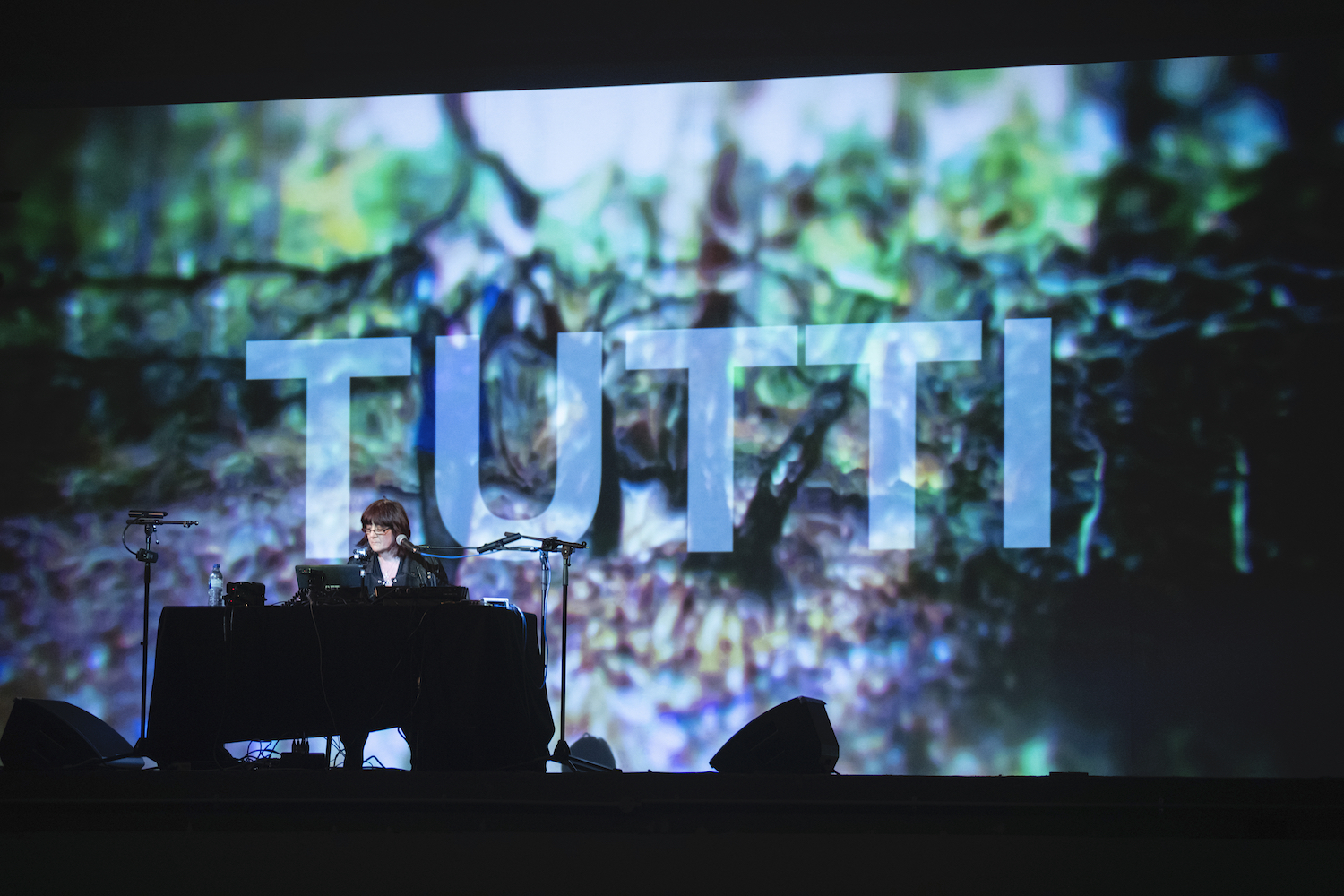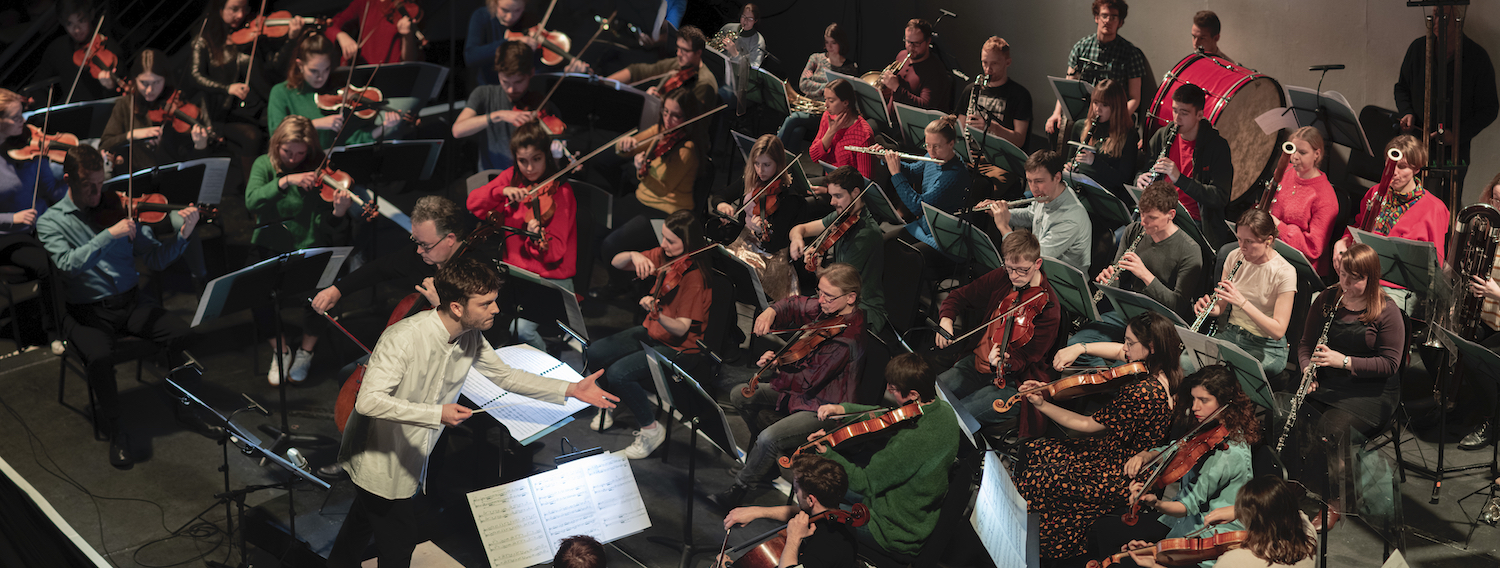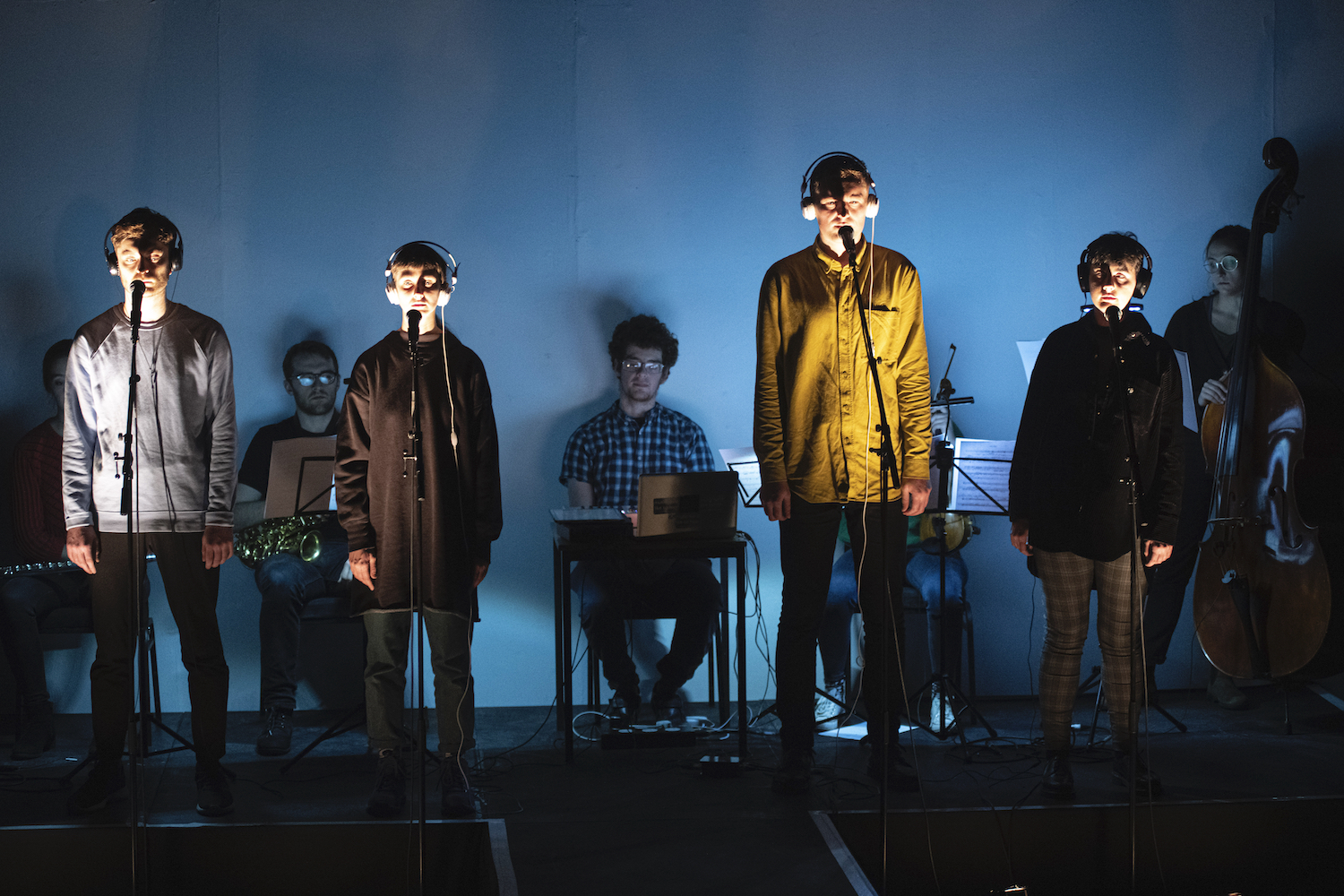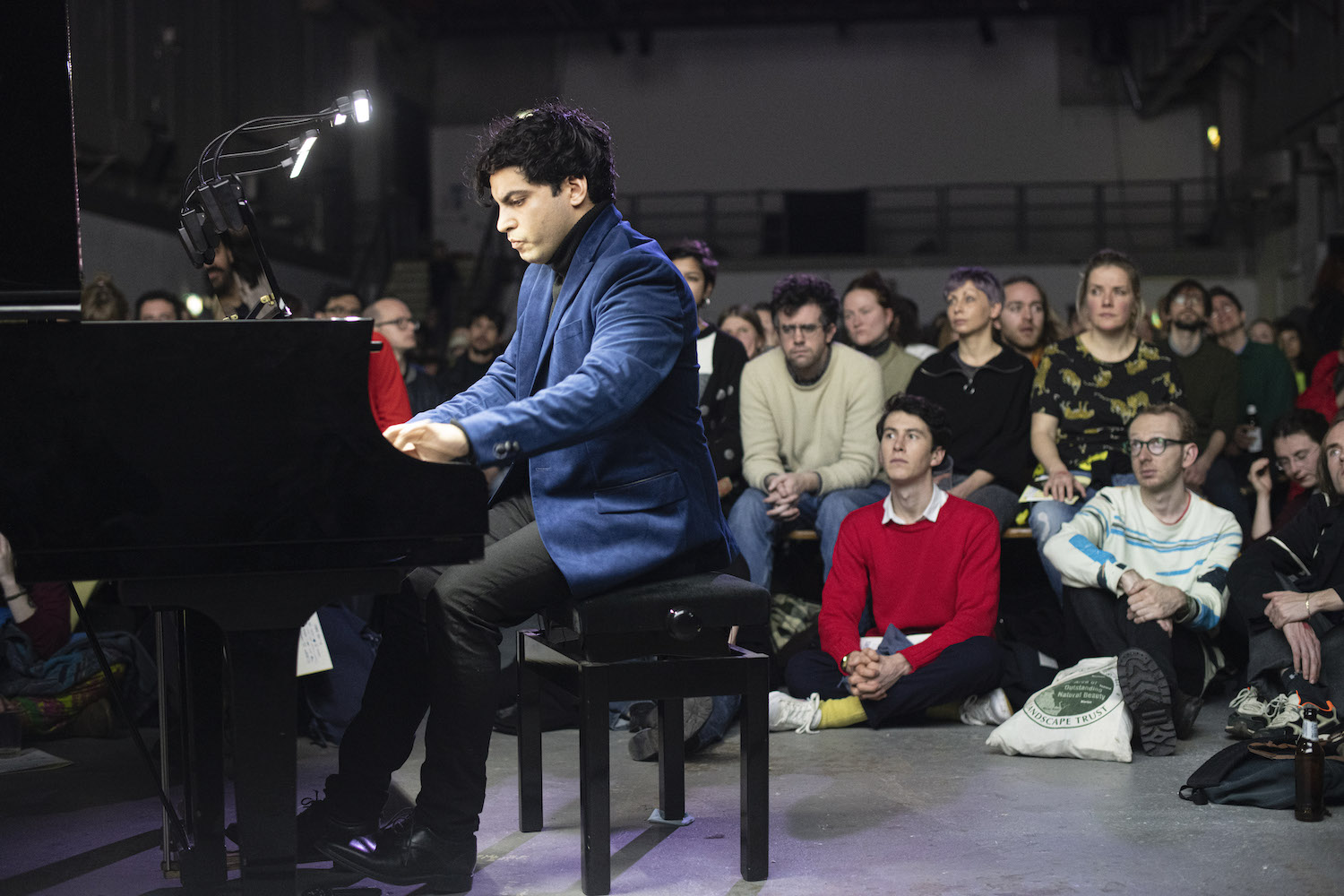LCMF 2019
12 December: On Gossip & Eavesdropping
Ambika P3

Cosey Fanni Tutti performing at LCMF 2019. Image: Dawid Laskowski
Vito Acconci
Seedbed (1972)
Holly Pester
a charm of powerful trouble (2019)
Louis D’Heudieres
Laughter Studies 6 (2019)
Michael Finnissy / Adam de la Cour
Hammerklavier (2019)
(world premiere) (LCMF commission)
INTERVAL
Lawrence Abu Hamdan
Rubber Coated Steel (2016)
Cassandra Miller
Duet for Cello and Orchestra (2015)
(English premiere)
INTERVAL
Cosey Fanni Tutti
Live
Performers:
Cosey Fanni Tutti
LCMF Orchestra
Anton Lukoszevieze cello (Miller)
Jack Sheen conductor (Miller)
Holly Pester
Zubin Kanga pianist (Finnissy)
An Assembly (D’Heudieres)
Rowland Hill (Acconci)
'Gossip is craft. It is a traditional art form of unofficial speakers, a genre of transivity and a species of knowledge that pulls passion, desire and the common will of its comprised people into the narrative; [it is about a shared] intimacy between teller, listener, talker, friend, whisperer, comrade, caller, collaborator.’ (Holly Pester, Witchy Methodologies conference, ICA, 2017)
‘Eavesdropping isn’t just about big data, surveillance and security. We all overhear. Listening itself is excessive. We cannot help but hear too much, more than we mean to. Eavesdropping, in this sense, is the condition – or the risk – of sociality per se, so that the question is not whether to eavesdrop, but the ethics and politics of doing so. This project pursues an expanded definition of eavesdropping therefore, one that includes contemporary mechanisms for listening-in but also activist practices of listening back, that is concerned with malicious listenings but also the responsibilities of the earwitness.’ (Joel Stern, Liquid Architecture, and James Parker, Melbourne Law School, 2018)
‘Acconci lay hidden beneath a room-sized, slanting plywood false-floor intoning words of love to the women walking over him, masturbating and moaning into a microphone.’ (April Kingsley on the premiere of Seedbed, ARTNews, 1972)
The LCMF Orchestra with soloist Anton Lukoszevieze, conducted by Jack Sheen, performing Cassandra Miller’s Duet. Image: Dawid Laskowski
‘A slow cello pivots between two notes, a steadfast voyager on a road laced with spangly seduction (brass fanfares, ardent strings). The journey lasts half an hour; it sums up a resolute lifetime of holding the course in bright and heartsore times. Cassandra Miller is a master of planting a seed and setting in motion an entrancing process, then following through with the most sumptuous conviction.’ (Kate Molleson on Duet for Cello and Orchestra, The Guardian, 2019)
‘Lawrence Abu Hamdan’s riveting Rubber Coated Steel, which won the short-film award at the Rotterdam Film Festival earlier this year, is a prime example of the artist who addresses political and social issues through a vigorous command of form. Born in Jordan, the filmmaker has a remarkable gift for listening — a “private ear” whose expertise not only defines his art but has led to his bearing witness when necessary.’ (Tony Pipolo, Artforum International, 2017)
An assembly performing Louis D’Heudieres’ Laughter Studies 6. Image: Dawid Laskowski
‘Hammerklavier is inspired by Michael Finnissy’s memories of a legendary performance by Sviatoslav Richter at the Royal Festival Hall in 1975, including Beethoven’s ‘Hammerklavier’ Sonata Op 106, as well as recent revelations that Richter was leading a secret life as a gay man. The work juxtaposes musical materials derived from Beethoven’s sonata (and idiosyncrasies of Richter’s performance) with a film part by Adam de la Cour, combining concert footage of Richter with vintage gay erotica of the mid-20th century. ’ (Zubin Kanga, 2019)
‘My idea is to compose with the music of Beethoven’s work as if were my own…. it is concerned with memory, perception, re-interpretation, fragementation, re-locating, estrangement, cubist-perspective…’ (Michael Finnissy, 2019)
‘It was impossible for me to live without a plastic lobster that I took with me everywhere, leaving it behind only at the very moment I went on stage.’ (Sviatoslav Richter)
Zubin Kanga performing Michael Finnissy and Adam de la Cour’s Hammerklavier
‘[In Louis D’Heudieres’ Laughter Studies compositions], the performers work from an audio score transmitted via headphones throughout the performance... The results are humorous, perplexing and disturbing – the fascination is in the gap between the intended sounds and their realisation, and between that and how we imagine we would reproduce them.’ (Tim Rutherford-Johnson, The Wire)
‘Wreckers of Civilisation’ (The Daily Mail on Cosey Fanni Tutti’s ICA exhibition, 1976)
‘State aid for Cosey's travelling sex troupe’ (The Daily Express, 1976)
‘[TUTTI is] a kind of self-portrait reaching backwards through all the sounds of [Cosey Fanni Tutti’s] life, an archival soul-mining that looks forward by dragging her life into the present and the future... It certainly feels in touch with Chronos, a question of time, warped and made strange in the recollection, but also utterly compelling.’ (Nina Power, The Wire, 2019)


 Zubin Kanga performing Michael Finnissy and Adam de la Cour’s Hammerklavier
Zubin Kanga performing Michael Finnissy and Adam de la Cour’s Hammerklavier